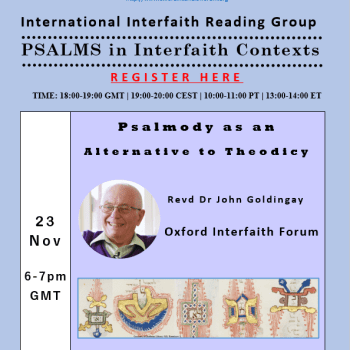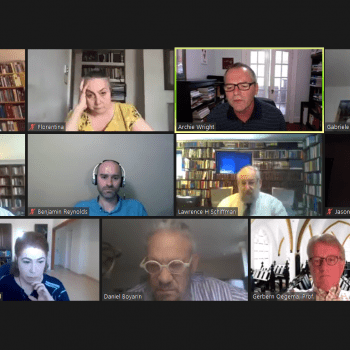I had a wonderful conversation recently with a student, which touched on a number of aspects of the problem of evil that – despite millennia of attention – seem to me somewhat neglected.
For instance, the classic statement of the problem focuses on the incompatibility of three things: omnipotence, omnibenevolence, and evil. But what about omniscience? It might at first glance appear to be logically irrelevant to the problem of evil. But what if one envisages a perfectly powerful and good God who simply does not realize that created beings are suffering – whether because God does not get that information, or because God is not the kind of entity that is able to empathize with our anguish?
It is also worth mentioning that the problem of evil is not in any sense, in and of itself, an argument for atheism. Evil is compatible with polytheism, as well as with a God that is good but not powerful or powerful but not good. Evil must shape our thinking about the attributes of God or gods. But it does not disprove the reality of the divine per se.
Mercy and self-transcendence are some of the human attributes that many hold in the highest esteem. We are especially impressed when the victims of mistreatment exemplify these characteristics. And so what would it mean to posit that God likewise extends mercy and for this reason refrains from intervening in history? Or, conversely, what would it mean to say that God is incapable of such things?
The student I spoke with used the language of “bringing God to justice” which I found particularly striking, It raises such interesting questions! If one were to prosecute God, what would the charge be? Cruelty? Negligence? Apathy? Murder? Genocide? How do you even punish God? If God were to experience everything that was suffered in creation by every creature would that make things right? That last thought experiment raises interesting questions related to the way most countries’ criminal “justice” systems work.
I also found myself thinking about Eva Kor and her controversial act of forgiving the perpetrators of the horrors she experienced. Her case illustrates that humans do not agree on the appropriate response to evil, and so it is unsurprising that what seems to one person a satisfactory resolution of the problem, to another will simply look like part of the problem. But once again the question is whether God is the ultimate perpetrator of all injustice, even if indirectly. If so, the perhaps the appropriate course of action would be that of Eva Kor, namely to forgive God rather than harbor resentment, for your own sake.
Viewed through this lens, it becomes a matter of not letting God defeat you – an idea that is not that far from the accusations and complaints towards God that one finds throughout the Hebrew Bible.
What do blog readers think? Is it possible to have any genuinely new insights when it comes to theodicy, the problem of evil?













